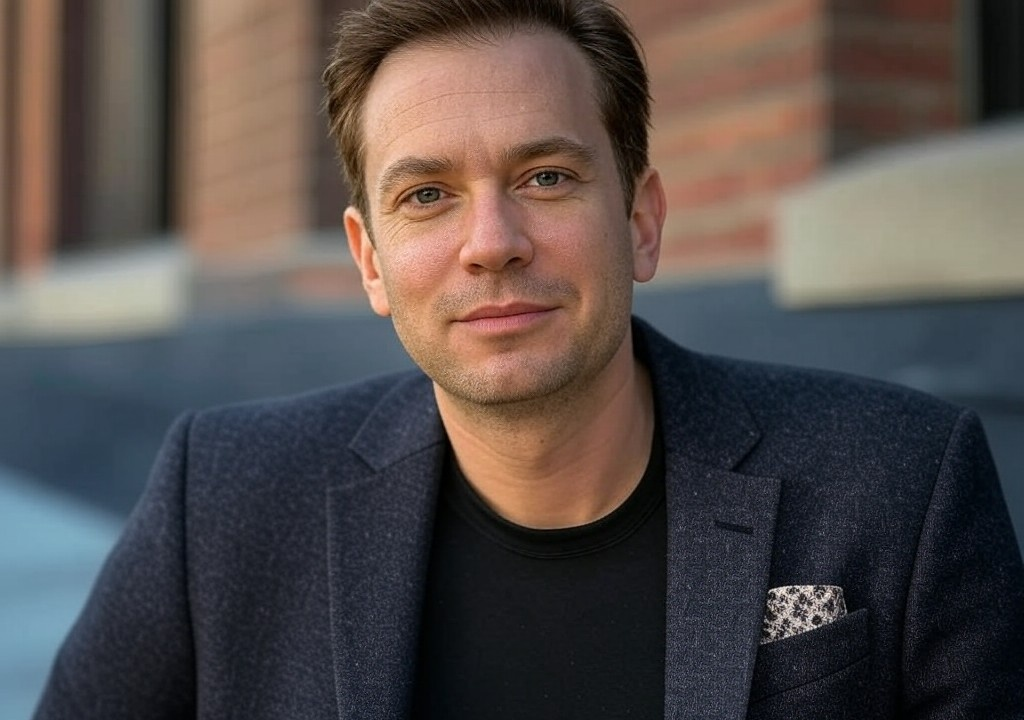My First Big Failure
How to Blow It Spectacularly (and Still Live to Tell the Tale)
Picture this: It’s a warm June evening in Brooklyn Heights, and 23-year-old me—fresh out of Yale, brimming with far more confidence than was advisable—is seated at a café table, pitching what I was sure was the next Great American Anthology to an editor at a major publishing house. I wore my best blazer (too snug, embarrassingly), ordered a cortado to seem worldly, and spoke with the kind of unearned authority reserved for people who graduate with a liberal arts degree and think it entitles them to own the world. The anthology, which I cringingly titled Modern Love: The City Speaks, was supposed to be a collection of short stories chronicling romantic relationships in urban settings.
Spoiler: It was terrible.
Not terrible in the “lacked effort” sense. Terrible in the “so hopelessly pretentious that it collapsed under the weight of its own metaphors” sense. The manuscript was filled with overwrought prose, characters who seemed more like sociology lectures in human form, and an inexplicable number of references to artisanal coffee shops. It was essentially my five favorite college essays—but dressed up in an ill-fitting literary suit.
When the editor glanced up from my pages, paused for what felt like an eternity, and said, “This feels... unmoored,” I nodded solemnly, as if I deeply understood. I did not. The meeting ended shortly after. My cortado sat untouched.
I walked home that night feeling, for the first time in my life, like a failure. Real failure. The heavy, dress-you-in-your-own-flaws kind. I’d grown up with examples of success all around me: wildly ambitious parents, accomplished peers, teachers who’d set sky-high standards. I was not accustomed to falling flat on my face in such an exquisitely public way. So, naturally, it was a fantastic time for my first big meltdown.
What I couldn’t predict then, sitting on a park bench that evening and sulking spectacularly…well, that failure would go on to forge the best chapters of my life.
The Original Failure Blueprint: A Comedy of Errors
The thing about big failures is that they’re rarely random. Looking back, I basically stacked the deck against myself. Let me walk you through my five-step plan for self-inflicted humiliation so you can, hopefully, avoid recreating it.
-
Overconfidence Meets Underpreparedness
I thought my Yale degree was the literary equivalent of a golden ticket. In truth, my manuscript lacked depth because I didn’t fully understand the worlds I was writing about. (Pro tip: One semester abroad does not make you an expert on Berlin’s nightlife.) -
Ignoring Feedback I Didn’t Like
Friends had read parts of the manuscript before the pitch, and some made gentle critiques about how my characters seemed, well, “weirdly obsessed with bicycles.” Did I address their concerns? No. Because surely they were wrong. -
Performing Instead of Listening
That meeting wasn’t just about my manuscript. It was about forming a connection with someone who could mentor me. I talked like I had all the answers, failing to realize I was there because I didn’t. -
Pinning My Worth on One Swing
I genuinely believed that if this anthology failed, I was doomed to irrelevance. This, dear reader, is what psychologists call “catastrophizing,” and let me assure you—it’s as unhelpful as it sounds. -
Treating Failure Like a Conclusion
That night on the park bench, I felt certain this was The End. I didn’t understand that failure is rarely a full stop—more often, it’s a comma, pausing you just long enough to reflect on what needs adjustment.
What Falling on My Face Taught Me About Getting Up
Some advice I now give my younger self when failure shows up like an unwelcome dinner guest:
1. Get Curious About the Belly Flop
When you bomb (and you will, we all do), take a moment to dissect the “why.” After licking my wounds, I returned to my manuscript with a fresh perspective. Some insights: My characters needed to actually feel things, not just talk incessantly about their favorite Bauhaus exhibits. And my anthology needed more humanity—less Brooklyn posturing.
2. Stop Fighting Failure Like It’s the Enemy
Here’s a wild thing that no one tells you: Failure can be a brilliant co-writer. Once I stopped treating it like a catastrophe and started embracing it as an opportunity, doors opened. The feedback I got from that brutal meeting shaped future projects in ways I never imagined.
3. Laugh About It (Eventually)
Humor takes the sting out of humiliation. Nowadays, I refer to that anthology as my “caffeinated clown car” of a project. My editor friends love this tidbit. (And who doesn’t love a good, self-deprecating laugh over mezcal cocktails?)
4. Find Your Humans
Surround yourself with people who remind you that your failure isn’t a defining feature—it’s just a moment. One of my best friends, an ex-actor turned chef, once told me, “Julian, this is nothing. I literally got booed offstage during my first Hamlet monologue.” Perspective.
5. Pivot. Don’t Quit.
Failure doesn’t mean you’re not good at something—it often just means you’re not ready yet. I realized I had more growing to do before I could tackle the kind of anthology I dreamed of. Spoiler: I eventually did publish a successful one.
Failure: The Original Glow-Up Coach
Here’s the beautiful thing about failure: It forces you to ask the question, “Who am I if this doesn’t work out?” I learned that I could let go of perfectionism (spoiler: no one misses it) and lean into the joy of experimenting instead. From that gawky manuscript eventually came new projects, better ideas, and collaboration with people who broadened my horizons.
And that editor who said my manuscript was “unmoored”? Years later, we ended up working together—on a project I was actually ready for.
So, if you’re currently staring failure in the face, here’s what I’ll leave you with: One swing doesn’t define you. Baseball greats strike out all the time—and still make the Hall of Fame. You’re allowed to fumble, regroup, and try again. Remember, a messy first draft never killed anyone. In fact, it might just be the prologue to something extraordinary. Keep writing. Keep living.
And, if all else fails, at least you’ll have a killer story to tell over cocktails.




















